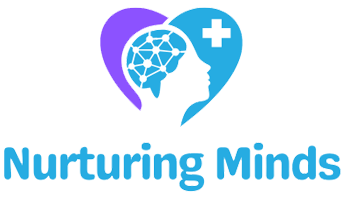
Schizoaffective disorder
Schizoaffective disorder is a mental health problem where you experience psychosis as well as mood symptoms. Call Nurturing Minds and schedule an appointment with Dr. Nonyerem Rosemary Eneje, DNP, FNP-BC, PMHNP-BC for a comprehensive evaluation and treatment.
What are the symptoms of schizoaffective disorder?
Schizoaffective disorder has two main types of symptoms:
Symptoms of psychosis
These symptoms are similar to those experienced in schizophrenia, including:
- Hallucinations – where you may experience things that others around you don’t. For example hearing voices, seeing visual hallucinations and other unexplained sensations.
- Delusions – where you might hold strong beliefs that nobody else shares. For example, a fear that everyone can hear your thoughts or that you can control the weather.
How is schizoaffective disorder different from schizophrenia or bipolar disorder?
Schizoaffective disorder is its own diagnosis. But schizoaffective disorder, schizophrenia and bipolar disorder can involve similar symptoms and experiences.
Diagnosing schizoaffective disorder can be complex. Not all professionals agree on how best to diagnose or describe it. A diagnosis of schizoaffective disorder may be considered if you’ve experienced:
- Symptoms that have lasted for a month or longer
- Symptoms of psychosis and mood symptoms at the same time
- Mood symptoms for most of the time that you’ve felt unwell
- A period of time (usually at least 2 weeks) of symptoms of psychosis without mood symptoms
- Depressive episodes that include low mood
Schizoaffective disorder is often seen as a psychotic disorder with significant mood features, rather than a mood disorder with psychosis.
What causes schizoaffective disorder?
Researchers don’t know exactly what causes schizoaffective disorder. But it’s likely to be caused by a combination of factors, such as:
How can I help myself?
Many people who are diagnosed with schizoaffective disorder are able to live happy and fulfilling lives. Self-care can help with this.
Self-care is how you look after your daily routine and the things that affect how you’re feeling. For example, exercise, relationships and diet. What helps you may be different from someone else. It’s worth trying out different things until you find what works for you.
You may find that making small changes in certain areas can help prevent some problems from developing.
Think about your triggers
You might find it helpful to keep track of your experiences over a period of time. You could try doing this for a few weeks at first, noting things down in a diary or on your phone. It may be helpful to track:
Doing this may help you to spot patterns in your thoughts, feelings and behaviors. It may also help you to think about situations that you find difficult, as well as those which have been helpful.
You might want to share your observations with your close family, friends or care team. It may be helpful for them to listen to you when you’re having a bad day. Or to help you keep on top of your commitments and be aware of your triggers.
What treatments are available?
Each person’s experience of schizoaffective disorder will vary, as will the treatments that work best for them.
Different treatments may be helpful for symptoms of psychosis, mania or depression. If you’re experiencing a combination of symptoms, you may need a combination of treatments. Or you may need different types of treatment at different times. Call Nurturing Minds and schedule an appointment with Dr. Nonyerem Rosemary Eneje, DNP, FNP-BC, PMHNP-BC for a comprehensive evaluation and treatment.
Treatments include:
Psychotherapy therapy
Medication Management
